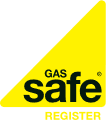Gas Safety for motorhomes and caravans
With increasing demand in the UK for touring caravans & motor homes, many people will be looking to take touring holidays – but it’s important not to forget gas safety in your mobile home from home.
This advice applies if you’re purchasing, hiring or currently own a caravan or motorhome. For those new to these, here’s a description for each:
Let’s talk caravans
The term caravan covers tourers, motor-caravans, motorhomes, and caravan holiday homes, collectively known as leisure accommodation vehicles (LAV). They are described below:
Tourers
As seen on the road being towed by another vehicle.
Motor-caravans
Motor-caravans incorporate the living accommodation like that of a touring caravan on to a motor based vehicle, and are therefore designed specifically for touring.
Follow Gas Safe Register’s tips to stay gas safe while on your touring holiday
- Hiring – Ask if the gas appliances in your Leisure Accommodation Vehicle (LAV) have been safety-checked and serviced. If you’re holidaying in the UK in a touring caravan or motorhome the hirer must do this by law and is required to provide an up-to-date Landlord Gas Safety Record
- Purchasing previously used LAV - Ask the vendor to provide any servicing and maintenance records. If these can’t be supplied, ask about having the gas installation checked by a Gas Safe Registered engineer
- Appliances in your LAV, such as gas cookers or gas fires, will be different to those you’re used to at home. It’s a good idea to ask for copies of the appliance user guide or maintenance instructions
- Ask for a demonstration on how to use the gas appliances/installation, including the storage, positioning, and exchange of LPG gas cylinders
- Gas cookers should not be used for heating and require adequate ventilation when in use
- BBQ’s are only intended to be used in open, well vented spaces. Used charcoal or disposable BBQ’s must never be taken inside your motorhome or caravan during or after use as this could cause carbon monoxide poisoning
- Do not block any purpose provided ventilation that is installed for safety of appliances and the occupants
- An MOT certificate for a motorhome is not a guarantee for the safety of the gas installation
- Remember – badly fitted and poorly maintained gas appliances can cause gas leaks, explosions, fires and carbon monoxide poisoning, which can be fatal
- Recognise the signs of a gas appliance that may indicate they are unsafe. Black marks or stains around the appliance and lazy yellow or orange flames instead of crisp blue ones could be signs that a gas appliance is not working properly. Do not use them until they’ve been inspected by a qualified Gas Safe Registered engineer
- Carbon monoxide poisoning could be mistaken for other holiday ailments, such as food poisoning, dehydration or a hangover. Remember the six main symptoms of CO poisoning: headaches, dizziness, nausea, breathlessness, collapse, and loss of consciousness.
If you smell gas or think there might be a gas leak
- If it’s safe to do so, turn off the gas at the cylinder
- Extinguish naked flames
- Leave the vehicle, ventilate by open windows and doors
- Seek medical advice if you feel unwell
- You can also contact the gas provider - consult your local telephone directory for details. On caravan sites, the site owner may also have gas safety responsibilities
Useful Downloads
-
Caravan and motor home gas safety fact sheet


